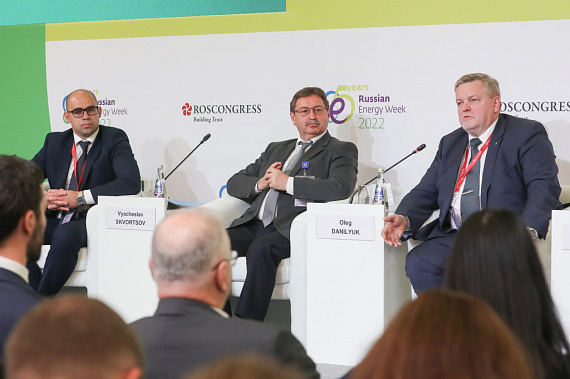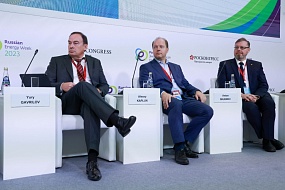Strengthening Security and Counterterrorism for Fuel and Energy Facilities in the New Reality: Current Changes to Regulation and Practice

Key conclusions
The new regulation will provide a sound basis for the development of a comprehensive security system, the issue of which has become more relevant during the special military operation
“For a long time, there was no clear distinction as to who protects which facilities in the fuel and energy sector. There used to be a wording in the law according to the category, according to the facility passport, but at the moment the law has clearly regulated this situation. Previously a wide range of people could have been allowed to guard facilities and the changes were aimed at enhancing security and safety. Now the question is strictly resolved based on the category – the higher the category, the more professional and the narrower the squad has the right to protect the site. The higher category of facilities can be guarded by the National Guard or departmental security [organizations, – Ed.],” Anastasiya Bondarenko, State Secretary, Deputy Minister of Energy of the Russian Federation.
«There were enough flaws, gaps and contradictions with other laws, and this law got rid of almost all of those things,” Vyacheslav Skvortsov, Vice President, Transneft.
“Recent events have changed our attitude to national security, economic and energy security. The topic has taken on a special significance for us. Without exaggeration, we have all started treating it much more seriously lately,” Anastasiya Bondarenko, State Secretary, Deputy Minister of Energy of the Russian Federation.
Problems
Over-regulation in the security of fuel and energy facilities
“We are forced to make anti-digging protection in rocky surfaces or in permafrost, where it is simply wasted money for the company. It could really be used for security or for upgrading our facilities and systems in a completely different, more efficient way,” Oleg Danilyuk, Director of the Security Department, RusHydro.
“Colleagues have had a number of messages that have to do with redundancy in the regulation to date. Why is this happening? Because at a certain stage, when these requirements were drafted, either this [current threats to fuel and energy facilities, – Ed.] did not exist, or we were not very careful in answering the question of who we were protecting against,” Alexander Kamyshnikov, Head of the Security Department, Rosseti.
“Security must be minimally sufficient – minimal in terms of cost, but sufficient to ensure the functioning of the facility,” Vyacheslav Skvortsov, Vice President, Transneft.
Solutions
Establishment of private corporate security organizations will help fuel and energy companies provide better security
“The most important conceptual innovation of the law is that it grants the right to individual facilities of fuel and energy companies to establish private corporate organizations. Not all, but only those that meet certain requirements and only by decision of the Russian government,” Anastasiya Bondarenko, State Secretary, Deputy Minister of Energy of the Russian Federation.
“Determine the status of protected airspace over fuel and energy facilities, over infrastructure – it can be done legislatively. Empower security unit personnel to suppress aircraft flights over protected facilities and transport infrastructure and provide us with additional special means that we can use,” Vyacheslav Skvortsov, Vice President, Transneft.
“The establishment by large corporations of their own corporate private security organizations is one element of efficient use of both technical means and means of building a security system, where we ourselves determine who we think is more convenient and who is more effective in protecting and securing a particular facility,” Oleg Danilyuk, Director of the Security Department, RusHydro.
A risk monitoring system is needed to respond promptly to new challenges
“The promptness of security decision-making can be ensured by risk management, which is stipulated in the Energy Security Doctrine of the Russian Federation. The Government of the Russian Federation is responsible for its formation. The main thing I would like to point out is that among the tasks the risk management system must address is monitoring, assessment and forecasting of long-term challenges and threats to the information security of fuel and energy facilities,” Yury Khamchichev, Head of Staff Department, Security Council of the Russian Federation.
“We would like to see our legislative bodies react more, shall we say, promptly to possible threats,” Vyacheslav Skvortsov, Vice President, Transneft.
“We still have a lot of work ahead of us on the risk system – it is apparently the very core of solving these issues [the security of fuel and energy facilities, – Ed.] in the interconnectedness that we addressed about today,” Anastasiya Bondarenko, State Secretary, Deputy Minister of Energy of the Russian Federation.
For more information, visit the Roscongress Foundation’s Information and Analytical System roscongress.org and the official Forum website rusenergyweek.com.




